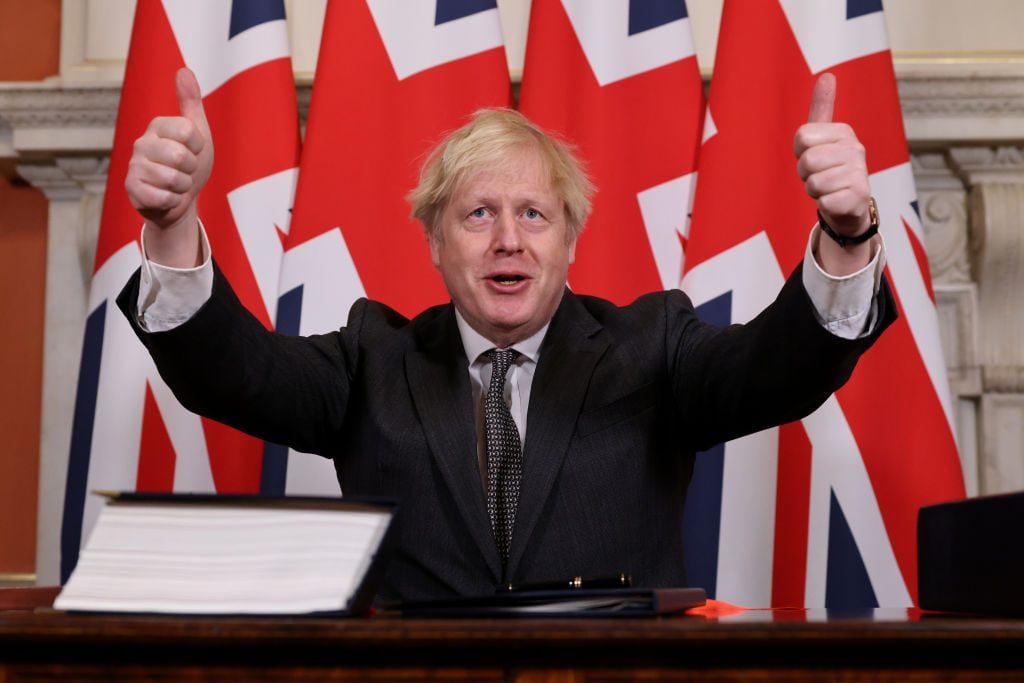Law & Politics
No Longer Able to Easily Work in Europe, UK Artists Are Urging Boris Johnson to Renegotiate Brexit Terms to Allow for Visa-Free Travel
British artists are now having a harder time getting work in Europe.

British artists are now having a harder time getting work in Europe.

Artists are lobbying for the UK government to renegotiate the terms of Brexit to make it easier for them to travel to work in the European Union.
Before Brexit, British artists could travel freely throughout the bloc. But that came to an end when the UK exited the union late last year, and now artists are subject to the individual visa restrictions imposed by member states—a bureaucratic obstacle that may prevent some from getting work outside their home country.
Now, artists and other cultural workers are speaking up. This week, a band of famous actors, including Patrick Stewart and Sir Ian McKellen, issued a public letter to Boris Johnson, imploring the Prime Minister to renegotiate the terms of the deal.
“Prime Minister, we urge you to negotiate new terms with the EU, allowing creative practitioners to travel to the EU visa-free for work, and for our European counterparts to be able to do the same in the UK,” the letter reads. “Not acting now will do further and irreparable harm to the UK’s creative workforce, our industries, and to our standing on the international cultural stage.”
The letter was organized by the Equity actors union, but Brexit’s terms apply equally to visual artists, musicians, and other creatives. Under the current terms, UK artists hoping to travel to the EU to perform, exhibit their work, study, or take part in other professional activities will likely have to apply for a visa or a short-term work permit. Depending on their destination, that could mean hundreds of dollars in fees, stacks of paperwork, and weeks of waiting.
Artists from other European countries, meanwhile, can travel to the UK visa-free for up to six months (or, if they are paid, up to one month).
More than 100 Equity members have written to @10DowningStreet demanding the PM renegotiates the Brexit deal to give creative workers visa-free travel in the EU.
? Read the letter ? https://t.co/BjOPNnCa4d
✊ Write to your MP ? https://t.co/0gylop05BL
? Share and RT ? pic.twitter.com/l9bpEphSWR
— Equity (@EquityUK) February 16, 2021
“The pandemic has already brought the art sector down to our knees; these new visa regulations have the potential to floor some parts of the sector completely,” said Aaron Cezar, director of the Delfina Foundation, which sponsors residencies, partnerships, and public programming in London.
“Artists are already working on small fees and institutions are struggling with meager budgets,” Cezar continued. “Now, we have increased costs and administrative burden to handle visas.”
Many have speculated that these restrictions will discourage employers in member states from hiring British talent. Twenty-nine percent of equity members say they have seen job advertisements and casting calls asking for EU passport holders only to apply, according to the open letter.
An online petition launched last month that calls on the UK Government to negotiate a free cultural work permit that would allow touring musicians and artists visa-free travel throughout the 27 EU states has since amassed more than 284,000 signatures.
The EU has also expressed disappointment that the new arrangement will make cultural exchange more difficult. “We are concerned that the provisions governing the entry and temporary stay of natural persons for business purposes are ill-suited to the cultural and creative sector and will result in onerous visa requirements for touring artists and cultural professionals,” Sabine Verheyen, a member of European Parliament and head of the EU’s committee for culture and education, told Artnet News in an email.
In response to the pressure from the culture industry to negotiate bloc-wide visa-free travel for artists, the UK’s culture minister Caroline Dineage said earlier this week that working to strike a deal for culture workers with individual member states would be the “more likely success route.” The government has yet to move forward with such a plan, but is working out which countries to approach first.
Naomi Rea contributed additional reporting to this story.